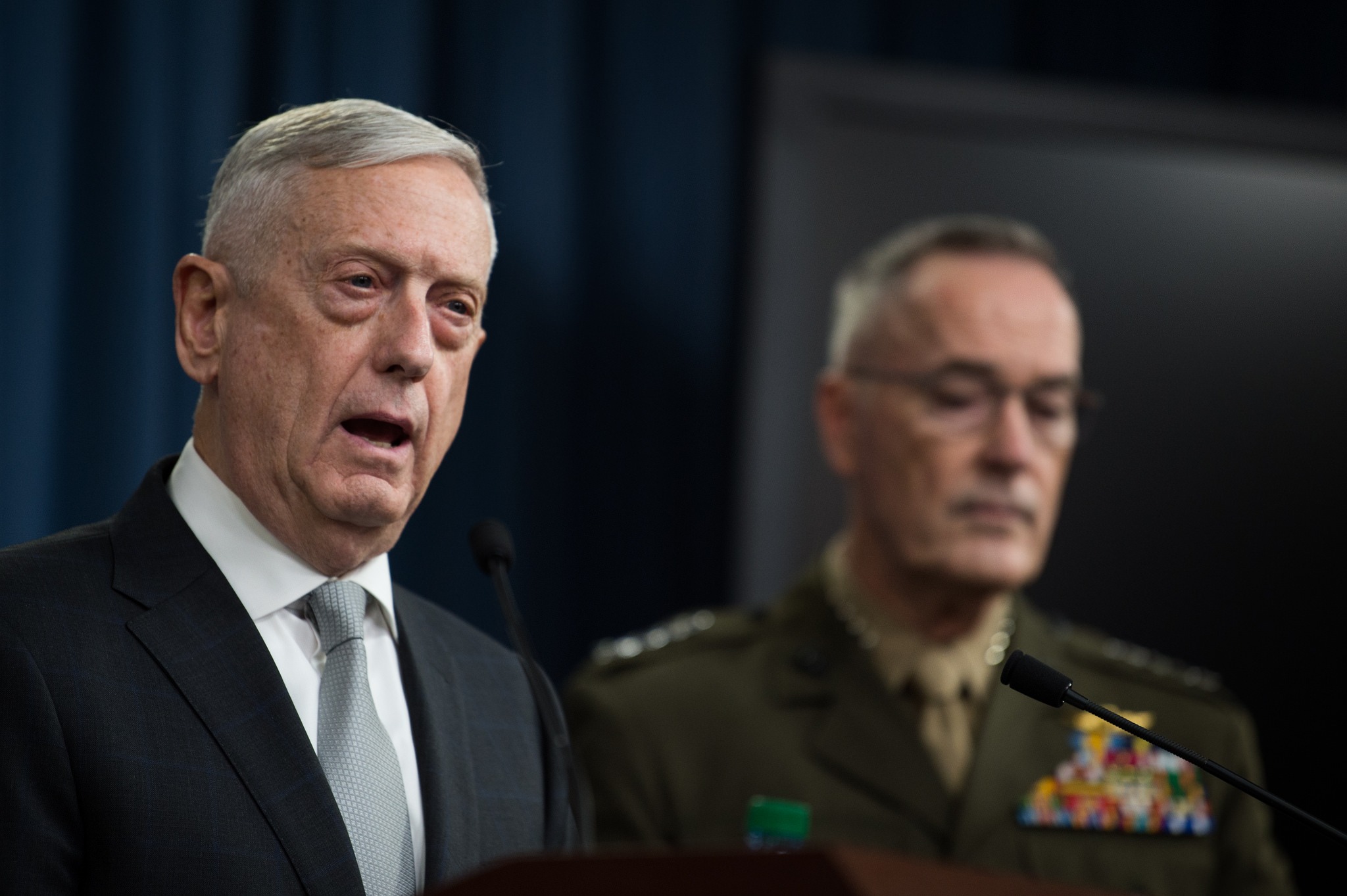
The US, Britain and France on Friday night launched missile strikes against Syrian research, storage and military targets as President Trump sought to punish Syrian President Bashar al-Assad for a suspected chemical weapons attack on the rebel holdout near the Syrian capital of Damascus on April 7, which killed more than 40 people and injured hundreds more.
Missiles and bombs hit three of Mr Assad’s chemical weapons facilities: a scientific research centre in Damascus, a chemical weapons storage facility west of Homs, and another storage site and command post nearby. The strikes were not used to attempt regime change.
US President Donald Trump blasted Iran and Russia for supporting the Assad regime. “To Iran and to Russia I ask: what kind of a nation wants to be associated with the mass murder of innocent men, women and children?” he said.
The missile strikes have raised the possibility of direct confrontation between Russia and the US, as relations between the countries hit new post-Cold War lows. “We warned that such actions will not be left without consequences,” Anatoly Antonov, the Russian ambassador to Washington said in a statement.
Syria and its ally Russia, which intervened militarily to back Mr Assad in 2015 and shifted the balance of the bloody civil war in the regime’s favour, denied the use of chemical weapons in Douma and accused opposition groups of fabricating the attack to win international sympathy.
A limited bombing campaign on Mr Assad’s military assets will not alter the course of the Syrian seven-year war, which has killed more than 500,000 people and dispersed millions more as refugees, but it might deter the further use of chemical weapons by the Assad regime.
The airstrikes marked the second time Mr Trump has launched reprisals against the Assad regime. Last year, he ordered the firing of 59 cruise missiles at an air base in Syria after a chemical weapons attack by the Assad regime killed more than 80 people. That was the first big military intervention by the US against Mr Assad since the conflict began in 2011. The US strikes, however, had little practical effect. Moscow criticised those strikes, but refrained from a military response. In August 2013, the Assad regime killed an estimated 1,400 people in a sarin gas attack in the eastern Ghouta area. President Barack Obama cancelled a punitive attack, even though he had earlier declared the use of chemical weapons a red line, a decision that dented US credibility.
The Friday attack came after days of ambiguity over the White House’s Syria strategy. On Monday, Mr Trump said he would decide on a possible strike within 48 hours. On Wednesday, he warned Russia to “get ready” for a missile attack. Moscow warned that it would shoot down any missiles and target American launch vehicles involved in any military operation that threatened its forces. On Thursday Mr Trump appeared to backtrack on his threat of US military intervention, tweeting “Never said when an attack on Syria would take place. Could be very soon or not so soon at all!”. Meanwhile, Jim Mattis, US defence secretary, said the Trump administration had made no decision to strike Syria.
There are about 2,000 American troops in eastern Syria, who are fighting alongside the Kurdish-led Syrian Democratic Forces (SDF), a group of militias that has liberated most of Syria’s eastern provinces from Islamic State, or Isis, an extremist group. Mr Trump’s intention is to get out of Syria as he judges the Isis mission accomplished. US troops, however, are needed to ensure that Isis does not return and keep Iran-backed militants, who have provided crucial ground support to Mr Assad, from entering newly-liberated areas. An American withdrawal from Syria would also embolden Turkey to step up its assault on Syrian Kurds in the north.
DoD photo by U.S. Army Sgt. Amber I. Smith